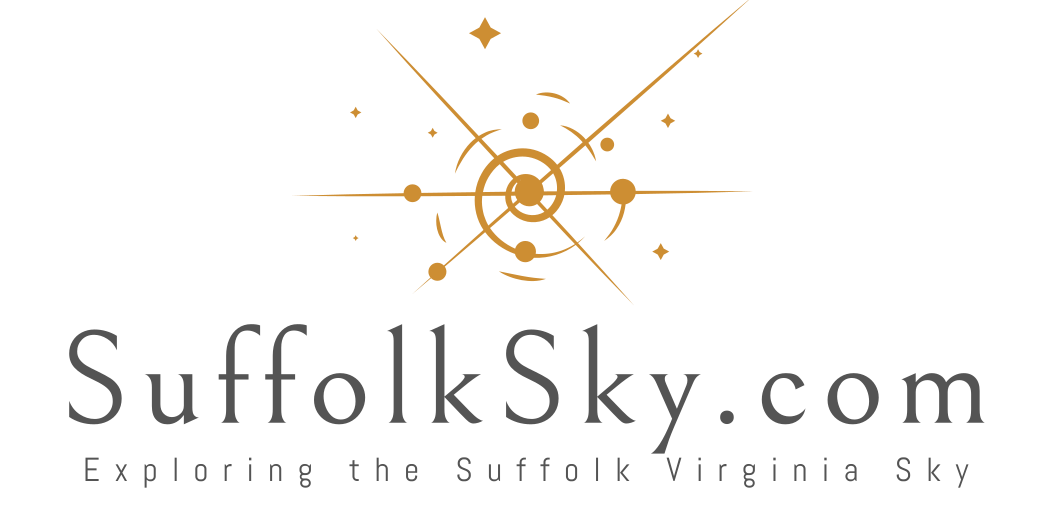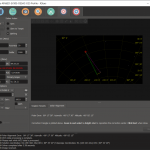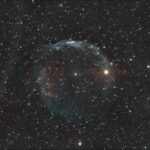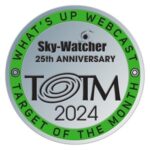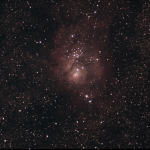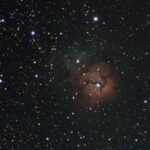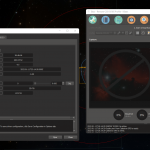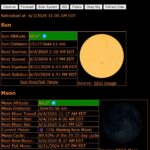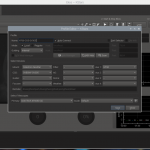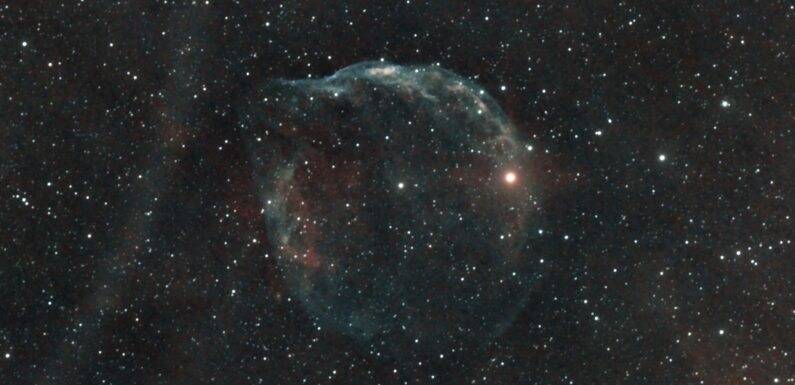
Another very cold and clear night so I took the opportunity to capture some more light from the Dolphin Head Nebula (Sh2-308/LBN 1052) I was able to add just over an hour and half to the just over an hour and a half of data I had from the night before – so over 3 hours total. The Moon was very bright, 87% waxing.
When the Sun set I uncovered the scope. First I checked focus and then I ran the Ekos Polar Alignment routine. It was still in pretty good alignment and only need some minor adjustments. Auto Focus set the focuser steps to 10315 and plate solving was calculating the focal length to 569.5 mm (F/5.6).
| Primary (Imaging) | Secondary (Guiding) |
|---|---|
| Scope: SVBONY SV503 102ED Reducer/Flattener: SVBONY SV193 0.8 FR/FF Filter: ZWO 2″ Duo-Band Filter Camera: ZWO ASI294 MC Pro, Cooled to -10 C Focuser: ZWO EAF Mount: Sky Watcher EQ6-R Pro |
Scope: SVBONY SV106 60mm Guide Scope Camera: Orion Star Shooter Autoguider (OSSAG) |
| Telescope Control, Image Acquisition, and Image Processing Software | |
|
Equipment Control and Imaging Software: KStars/Ekos connecting to INDI Server on a Raspberry Pi Stacking and Processing Software: Siril astronomical image processing tool |
|
37 x 180 second exposures captured on 01/20/2024 combined with 34 x 180 second exposures on 01/21/2024 for a total of 71 x 180 seconds or 3 hours and 33 minutes. Just as the night before the light from 01/21/2024 was captured at 121 gain, 30 offset, and bin 2×2. Here are the results after stacking, cropping, rotating, and processing with Siril.
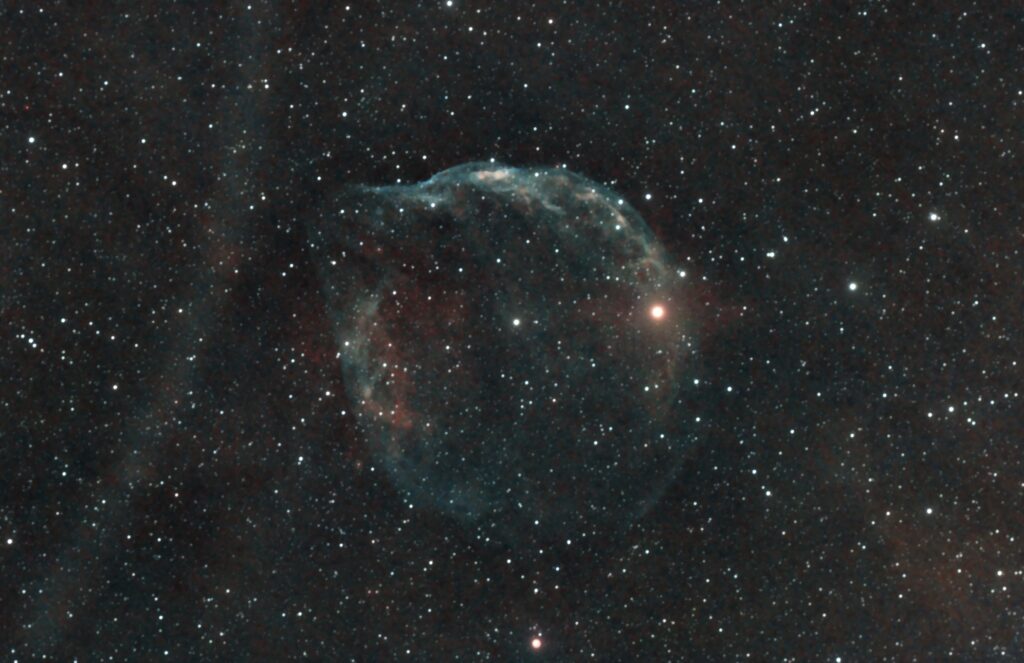
The dolphin’s nose and mouth are resolving nicely. I can see the full outline of the head now. Learning a bit more about what Siril can do, and I think the results are decent. Will get better with more light and practice.
We have a few nights of clouds in the forecast, so the scope will be covered for at least the next few days. Going to pack this Dolphin Head capture up and submit it to the Sky-WatcherUSA TOTM.
I created a page to track my 2024 Sky-WatcherUSA TOTM Submissions.
